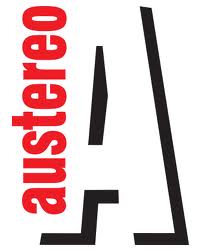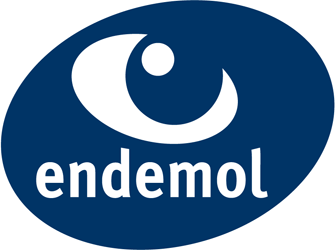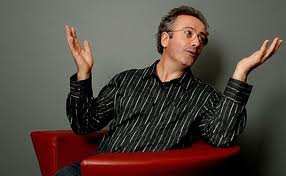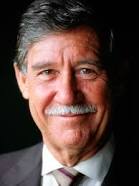A New Media Landscape: what would it mean for you?
Brad March is a former CEO of the Austereo Network.
Your world could be about to change.
If the Gillard labor government's push for changes to media laws are successful, things will never be the same in radio again.
All of the big media groups are lobbying their cases and politicians will now decide whether the reforms get the go ahead or not. It looks unlikely that these changes will now happen following the coverage over the past week.
The scope of the changes, and the way the government has handled the reforms, has caused what appears to be an 'all in brawl'.
At stake, long term, is hundreds of millions of dollars if there were any change to ownership rules for newspapers, radio and television. The current laws, in reality, have become outdated due to the impact of the internet.
 |
 |
 |
Today, news aggregators, search engines and social media such as Blogs, Facebook, Twitter and Google+ play an increasing role in distributing news, information and entertainment.
The laws were last reviewed almost a decade ago and a lot has changed since then in the online environment. Consumers increasingly get their news and information from online sources.
Also under consideration by the government is the introduction of PIMA – the Public Interest Media Advocate to oversee press standards and to 'regulate' media mergers and acquisitions. This has created its own controversy.
Putting the press reform and politics aside, Australian media is among the worlds most concentrated – in particular newspapers with News Corp controlling the majority of newspapers and Fairfax owning the SMH, the Age, and the Financial Review.
There are 4 major metro radio groups – Southern Cross Media, DMG, Fairfax and ARN with 3 free to air television networks – Nine Network (owned by CVC), Ten Network Holdings and Seven West Media. The other major player being pay TV Foxtel owned by News Corp and Telstra.
So if the rules change how would it effect you ?
The main mergers being speculated about are Southern Cross Media and the Nine Network, which would make up a company worth around $4 billion.
Seven may merge with Prime Media.
Lachlan Murdoch, the owner of the DMG radio network, already owns a share of the Ten Network and is Ten's Chairman. Seven's 25-54 demographic profile would be a great 'fit' for Fairfax's SMH and The Age. Fairfax radio stations like 2UE and 3AW would be a great 'fit' for Seven.
There have been suggestions that Ten and DMG already work closely together and Nine and Southern Cross have been 'accused' of doing the same. Nine and Southern Cross have the first mover advantage should any change occur and this has put the other groups on the back foot.
If the government is successful with these media reforms obviously there are major cost benefits, sales synergies and greater audience delivery for the new enlarged companies but, also, there are major cultural challenges to be overcome.
 I was Group Programme Director in the nineties when Paul Thompson's Austereo merged with Village Roadshow's Triple M Network. This put the fiercely competitive Today and Triple M networks under the same roof with the same management & ownership. The two networks were not only competitive but culturally worlds apart.
I was Group Programme Director in the nineties when Paul Thompson's Austereo merged with Village Roadshow's Triple M Network. This put the fiercely competitive Today and Triple M networks under the same roof with the same management & ownership. The two networks were not only competitive but culturally worlds apart.
Culture, ego's and status are a huge consideration once any merger has taken place. For instance, Southern Cross is currently the huge fish in a small pond. If swallowed by Nine it suddenly becomes the poor cousin in an enormous pond. There's a winner and a loser in every merger. Generally the big guy wins !
As well as the management and executive changes, there's an effect on talent. For instance, once an existing contract expires, it would become difficult for talent to be on TV on one network and radio on another. Of course it would also open up greater opportunities for radio and TV talent.
The challenge for Programmers in a TV/Radio merge is that TV programming and radio programming are so different. TV is block programmed, each show or series is separate and radio is programmed around music formats, station brands and key talent. TV Programmers don't generally get 'hands on' involved with producing shows. The role of Executive Producer is very different in radio compared to television.
Radio may lose valuable Program Directors and APD roles if radio were to be run by TV executives.
For Sales, marketing and support roles like accounting, engineering and IT, you could expect big culls at some point after a merger.
There will be increased cross promotion for both radio and TV in a merged company.
Advertising dollars would shift around. If Southern Cross merges with Nine, you would expect Seven to immediately withdraw all advertising revenue from SCM. If the company comprised TV, radio and online there would be less need for Advertising Agencies. More clients would be handled 'in house'.
News would become centralised, one newsroom feeding both radio and television.
Even fitting everyone into one building can create major cultural issues. Who gets the car parks ?
And at the end of the day there will be only one Chairman, one CEO, one CFO and one Board of Directors. I'd expect that there's already been plenty of jostling for positions.
Merging media groups is a way for companies to continue to grow. It allows them to increase revenue and profits as advertising revenue slowly shifts from 'old' media to 'new' digital media and can make for an improved stock market listing.
The greatest challenge in any merged company will be to harness the great talent and programming brains as well as delivering better packaged advertising solutions for clients across various delivery points. There will be enormous positive synergies for advertisers.
The TV companies could also benefit from some of the creative product people in radio.
 Look at former radio executive John de Mol of Endemol who created some of TV's biggest hits like Big Brother, Deal or No Deal and The Voice.
Look at former radio executive John de Mol of Endemol who created some of TV's biggest hits like Big Brother, Deal or No Deal and The Voice.

Or Andrew Denton (left) who started out in radio on Triple M. His TV shows include Live and Sweaty, Enough Rope, The Gruen Transfer, Money or the Gun and Can of Worms.

And probably the most successful TV talent to emerge from radio was Reg Grundy (right). Reg started work at 2SM Sydney and created hugely successful shows like Wheel of Fortune, Sale of the Century, The Restless Years, Prisoner, Sons and Daughters and Neighbours.
The mooted changes are unlikely to happen now but it's only a matter of time before the next big shake up happens in media.
Brad March is a former CEO of the Austereo Network
 |
 |


